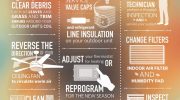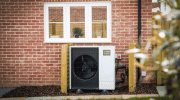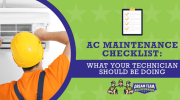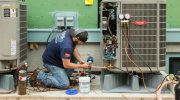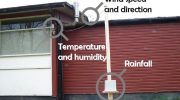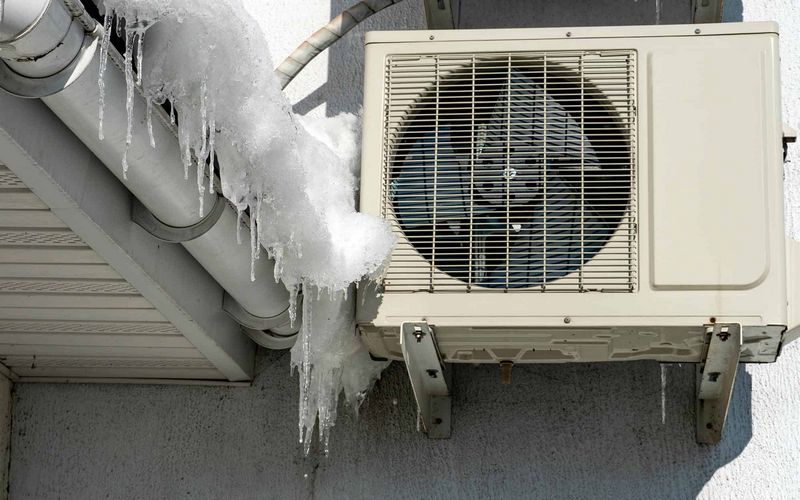
Noises and Smells From Your HVAC System
Is your HVAC system making strange noises or emitting unpleasant smells? Don’t ignore these signs as they can indicate a problem that needs immediate attention. Ignoring these issues could lead to further damage and costly repairs. Let’s explore some common noises and smells that you may encounter with your HVAC system and how to identify and solve the problem.
Noises:
If you hear rattling, banging, or squealing noises coming from your HVAC system, it’s important to investigate the source. These noises can be a sign of loose or damaged parts, such as a loose fan belt, faulty motor, or worn-out bearings. Ignoring these sounds can lead to more serious issues and even system failure.
It’s recommended to turn off your HVAC system and call a professional technician to inspect and repair it. A trained technician can identify the cause of the noise and provide the necessary repairs to ensure your system operates smoothly and quietly.
Smells:
If you notice strange or unpleasant smells coming from your HVAC system, it’s important to address them promptly. These smells can be an indication of mold, mildew, or even a gas leak.
First, check if the smell resembles a musty or damp odor. This could indicate the presence of mold or mildew in your system, which can be harmful to your health. In this case, it’s crucial to have a professional clean and disinfect your HVAC system to eliminate the source of the smell and improve indoor air quality.
If you detect a strong, rotten egg smell, it may indicate a gas leak. Evacuate your home immediately and contact your gas supplier for assistance. Gas leaks are extremely dangerous and require immediate attention from a professional.
Remember, being proactive about addressing noises and smells from your HVAC system can save you from costly repairs and potential health hazards. Don’t hesitate to seek professional help to identify and solve these problems and ensure your HVAC system operates efficiently and safely.
Common HVAC Noises
If you are experiencing strange noises coming from your HVAC system, it may be a sign of a problem that needs to be addressed. Here are some common HVAC noises and what they might mean:
- Banging or clanging: This noise could indicate that there is a loose or broken component inside your system. It’s important to have a professional technician inspect and repair the issue.
- Squealing: A high-pitched squealing noise may be caused by a worn or loose belt. This should be replaced as soon as possible to prevent further damage.
- Rattling: If you hear a rattling sound, it could be due to loose ductwork or debris in the system. An HVAC technician can help identify and fix the source of the noise.
- Grinding: This noise is often a sign that the motor or bearings in your HVAC system are wearing out. It’s crucial to have a professional inspect and repair the problem to prevent a breakdown.
- Clicking: Clicking sounds can be normal when your HVAC system turns on or off, but if the noise is excessive or continuous, it may indicate an issue with the electrical components.
If you are experiencing any of these noises or other unusual sounds from your HVAC system, it’s best to contact a professional technician. They can diagnose the problem and provide the necessary repairs to ensure your system runs smoothly and quietly.
Rattling and Banging Noises
If you’ve noticed rattling or banging noises coming from your HVAC system, it’s important to address the issue as soon as possible. These noises can indicate a serious problem that could lead to further damage and costly repairs if left untreated.
Common Causes
- Loose or damaged ductwork: If the noise is coming from the ductwork, it could be due to loose or damaged sections. This can cause the ducts to rattle or bang against other objects, creating noise.
- Blower motor issues: The blower motor is responsible for circulating air throughout your HVAC system. If it becomes loose or damaged, it can cause rattling or banging noises.
- Dirty or clogged air filters: Dirty or clogged air filters can restrict airflow, leading to increased pressure within the system. This increased pressure can cause the system to make loud banging noises.
- Worn or damaged fan blades: Over time, the fan blades in your HVAC system can become worn or damaged. This can cause them to create a rattling noise as they spin.
Solutions
If you’re experiencing rattling or banging noises from your HVAC system, it’s best to contact a professional for inspection and repair. They will be able to identify the exact cause of the noise and provide you with the appropriate solution.
Some common solutions for rattling and banging noises include:
- Tightening or replacing loose or damaged ductwork.
- Repairing or replacing the blower motor.
- Changing the air filters regularly to ensure proper airflow.
- Replacing worn or damaged fan blades.
Remember, addressing these issues promptly can help prevent further damage to your HVAC system and potentially save you money on repairs.
Clicking and Tapping Noises
If you hear clicking or tapping noises coming from your HVAC system, it’s important to address the issue as soon as possible. These noises can be a sign of a malfunction or a problem that needs to be fixed. Ignoring the issue can lead to further damage and higher repair costs.
Possible Causes
- Loose or damaged fan blades
- Problems with the motor or electrical components
- Issues with the compressor
- Obstructions in the ductwork
- Loose or faulty connections
What to Do
- Contact a professional HVAC technician to inspect and diagnose the problem.
- Provide the technician with information about the noises you’re hearing, when they occur, and any other relevant details.
- Follow the technician’s recommendations for repair or replacement of faulty parts.
- Regularly maintain your HVAC system to prevent future issues.
Benefits of Professional HVAC Services
By hiring a professional HVAC technician, you can:
- Ensure accurate diagnosis and repair of the problem
- Receive expert advice on the best course of action
- Minimize the risk of further damage
- Extend the lifespan of your HVAC system
- Improve energy efficiency and reduce utility costs
Don’t let clicking and tapping noises disrupt your home comfort. Contact a professional HVAC technician today to resolve the issue and enjoy a quiet and efficient HVAC system.
Whistling and Hissing Noises
Are you hearing strange whistling or hissing noises coming from your HVAC system? Don’t ignore these sounds, as they could indicate a problem that needs attention. Here are some common causes of these noises and how to solve them:
- Clogged air filter: A dirty or clogged air filter can restrict airflow and cause the HVAC system to work harder, leading to whistling noises. Regularly replace or clean your air filter to prevent this issue.
- Leaking ductwork: Hissing noises often result from air escaping through gaps or cracks in the ductwork. Inspect your ducts for any visible signs of leaks and seal them with duct tape or call a professional for repairs.
- Low refrigerant level: If your HVAC system is low on refrigerant, it can cause a whistling sound. Contact an HVAC technician to check and recharge the refrigerant if necessary.
- Faulty blower motor: A malfunctioning blower motor can generate strange noises, such as a whistling or hissing sound. Have a technician inspect and repair or replace the motor if needed.
Remember, ignoring these noises can lead to more significant HVAC problems down the line. If you are unable to identify or solve the problem on your own, it’s best to call a professional HVAC technician for assistance. They can diagnose the issue and provide the necessary repairs to ensure your system functions optimally and quietly.
Grinding and Scraping Noises
If you hear grinding or scraping noises coming from your HVAC system, it is important to address the issue promptly. These noises can indicate a mechanical problem that could potentially lead to costly repairs if left unattended.
Causes:
- Worn-out motor bearings: Over time, the bearings in the HVAC system’s motor can wear out, causing grinding noises.
- Misaligned belt: If the belt that connects the motor to the blower becomes misaligned, it can create a scraping sound.
- Loose or damaged components: Loose or damaged components within the HVAC system, such as fan blades or blower wheels, can also produce grinding or scraping noises.
Solutions:
- Contact a professional: If you are not familiar with HVAC systems, it is best to contact a professional technician to diagnose and repair the issue. They have the necessary tools and expertise to identify and solve the problem.
- Tighten or replace parts: If the issue is due to loose or damaged components, the technician will tighten or replace them as needed.
- Lubricate the motor bearings: In some cases, the grinding noises may be caused by worn-out motor bearings. The technician can lubricate the bearings or replace them if necessary.
Remember, addressing grinding and scraping noises promptly can help prevent further damage to your HVAC system and save you from costly repairs in the future.
Popping and Rumbling Noises
If you’re hearing popping and rumbling noises coming from your HVAC system, it’s important to address the issue right away. These sounds can indicate a potential problem with your system that needs to be resolved to avoid further damage.
A common cause of popping and rumbling noises is air trapped in the ductwork. When the air moves through the ducts, it can create pressure that results in these sounds. This can be caused by a variety of factors, such as a clogged air filter, blocked vents, or improperly sized ducts.
To fix this issue, start by checking and replacing your air filter if it’s dirty or clogged. Make sure all vents are open and unobstructed to allow for proper airflow. If the problem persists, it may be necessary to have a professional inspect and clean your ductwork.
Another possible cause of popping and rumbling noises is a faulty blower motor. Over time, blower motors can wear out or become unbalanced, leading to these sounds. If you suspect a problem with your blower motor, it’s best to have it inspected and repaired by a qualified HVAC technician.
It’s important to address popping and rumbling noises as soon as possible to prevent further damage to your HVAC system. Ignoring these sounds can lead to more serious issues and potentially costly repairs down the line. If you’re experiencing any unusual smells or other noises from your system, it’s always best to consult a professional for a proper diagnosis and resolution.
Common HVAC Smells
If you notice strange smells coming from your HVAC system, it’s important to address the issue as soon as possible. Ignoring these odors could lead to larger problems down the line. Here are some common smells you might encounter and their potential causes:
- Burning smell: This could indicate an electrical problem, such as a motor or wiring issue. It’s important to turn off your system immediately and call a professional.
- Musty smell: A musty odor could be a sign of mold or mildew in your HVAC system. This could be caused by excess moisture or a clogged drain line. A professional can help you identify and eliminate the source of the smell.
- Rotten egg smell: If you notice a rotten egg smell, it could be a sign of a gas leak. Leave your home immediately and call your gas company or emergency services. This is a serious issue that requires immediate attention.
- Chemical or metallic smell: A chemical or metallic smell could indicate a problem with your HVAC system’s components, such as a leaking refrigerant or overheating motor. It’s important to have a professional inspect and repair your system to avoid further damage.
- Dusty smell: If your HVAC system has been dormant for a while, you may notice a dusty smell when you first turn it on. This is usually harmless and can be resolved by changing your air filter. However, if the smell persists, it’s best to have a professional inspect your system.
If you experience any of these smells coming from your HVAC system, it’s important to take action. Contact a professional HVAC technician to diagnose and resolve the issue. They have the knowledge and expertise to identify and fix the problem, ensuring your system operates efficiently and safely.
Burning Smell
If you detect a burning smell coming from your HVAC system, it is important to address the issue promptly. Ignoring this problem can lead to more severe damage and potential safety hazards.
Possible causes of a burning smell from your HVAC system include:
- Overheating components: Parts of your HVAC system may be overheating due to excessive use or a malfunction. This can result in a burning smell.
- Dust or debris: Accumulated dust or debris on heating elements or air filters can cause a burning odor when they are heated up.
- Electrical issues: Faulty wiring or electrical problems within your HVAC system can produce a burning smell.
If you are experiencing a burning smell from your HVAC system, follow these steps to address the problem:
- Turn off your HVAC system: Shut off the power to your HVAC system to prevent any potential hazards.
- Check for visible issues: Inspect your HVAC system for any obvious signs of damage or overheating.
- Replace or clean air filters: If your air filters are dirty or clogged, they may be causing the burning smell. Replace them if necessary or clean them if they are reusable.
- Call a professional technician: If you cannot identify or resolve the issue on your own, it is recommended to contact a trained HVAC technician. They will be able to diagnose and repair the problem safely and efficiently.
Remember, a burning smell from your HVAC system should not be ignored. Taking prompt action can help prevent further damage and ensure the safety and efficiency of your system.
Musty or Moldy Smell

If your HVAC system is producing a musty or moldy smell, it’s important to address the issue as soon as possible. This unpleasant smell could indicate that there is mold or mildew growing somewhere in your system, which can lead to poor indoor air quality and potential health risks. Here are some common causes and solutions for a musty or moldy smell:
- Clogged or dirty air filters: Over time, dust, dirt, and other particles can accumulate in your air filters, creating a breeding ground for mold and mildew. Regularly changing or cleaning your air filters can help prevent this issue.
- Dampness or water leaks: If there is excessive moisture or water leaks in your HVAC system, it can create the perfect environment for mold and mildew growth. Inspect your system for any signs of moisture or leaks and address them promptly.
- Dirty evaporator coils: The evaporator coils in your HVAC system can become dirty over time, providing a surface for mold and mildew to grow. Regular maintenance and cleaning of your coils can prevent this issue.
- Clogged condensate drain line: The condensate drain line is responsible for removing excess moisture from your HVAC system. If this drain line becomes clogged, it can lead to a buildup of water and create a breeding ground for mold and mildew. Regularly checking and cleaning the condensate drain line can help prevent this issue.
If you are experiencing a musty or moldy smell from your HVAC system and are unable to identify or solve the problem on your own, it is recommended to contact a professional HVAC technician. They have the knowledge and experience to diagnose and resolve the issue, ensuring that your system is working efficiently and providing clean, odor-free air.
Rotten Egg Smell
If you’re experiencing a foul odor in your home that smells like rotten eggs, it could be coming from your HVAC system. This unpleasant smell is caused by a gas called hydrogen sulfide, which is often present in natural gas.
It’s important to address this issue promptly as hydrogen sulfide is not only unpleasant, but it can also be harmful to your health. Here are some potential causes of the rotten egg smell and how to solve them:
- 1. Sewer Gas Leak: A sewer gas leak can occur when there is a problem with the plumbing or sewer lines. This can result in the smell of rotten eggs. Contact a licensed plumber to inspect and repair any leaks.
- 2. Dead Animals: Sometimes, small animals or rodents can find their way into your HVAC system and unfortunately, meet their demise. This can cause a putrid smell to emanate from your vents. A professional HVAC technician can remove any dead animals and clean your system.
- 3. Bacterial Growth: Bacteria can grow in stagnant water or on dirty cooling coils, producing a rotten egg-like smell. Schedule regular HVAC maintenance to clean and disinfect your system to prevent bacterial growth.
- 4. Malfunctioning Anode Rod: If you have a gas or oil-fired water heater, a malfunctioning anode rod can cause the water to become contaminated with sulfur, resulting in a rotten egg odor. Consult a plumber to replace the anode rod.
If you’re unsure of the source of the smell or if the odor persists after trying these solutions, it’s best to contact a professional HVAC technician. They can thoroughly inspect your system, identify the issue, and provide the necessary repairs or maintenance to eliminate the smell.
Chemical Smell
Are you experiencing strange smells coming from your HVAC system? Specifically, are you noticing a chemical smell in your home? This could be a sign of a serious problem with your system that needs to be addressed immediately.
A chemical smell can indicate a variety of issues with your HVAC system, including:
- Leaking refrigerant
- Problems with the electrical components
- Malfunctioning blower motor
- Clogged air filters
If you are experiencing a chemical smell, it is important to take action right away. Ignoring the problem can not only lead to further damage to your HVAC system, but it can also pose a health hazard to you and your family.
What should you do if you notice a chemical smell?
- Contact a professional HVAC technician to inspect and repair your system. They have the knowledge and expertise to identify the source of the smell and recommend the necessary repairs.
- Turn off your HVAC system to prevent further damage or issues.
- Avoid using any air fresheners or other scented products to mask the smell. These can worsen the problem and make it more difficult to identify the source.
Remember, a chemical smell coming from your HVAC system is not something to ignore. Take action right away to ensure the safety and comfort of your home.
Smoky or Electrical Smell
If you notice a smoky or electrical smell coming from your HVAC system, it is important to address the issue as soon as possible. This type of smell can indicate a serious problem that needs immediate attention.
Possible causes of smoky or electrical smells:
- Faulty wiring: Electrical smells can be caused by faulty wiring or connections in your HVAC system. This can be a fire hazard and should be addressed by a professional electrician.
- Overheating motor: If your HVAC system’s motor is overheating, it can produce a smoky or burning smell. This could be due to a lack of lubrication or a malfunctioning part.
What to do:
- Turn off your HVAC system: If you notice a smoky or electrical smell, turn off your HVAC system immediately to prevent any further damage or potential fire hazards.
- Call a professional technician: Contact a qualified HVAC technician to inspect and diagnose the issue. They will have the expertise and tools necessary to identify and solve the problem.
- Don’t attempt repairs yourself: Attempting to fix electrical or mechanical issues on your own can be dangerous. Leave it to the professionals to ensure the safety and proper functioning of your HVAC system.
Addressing the source of the smoky or electrical smell in your HVAC system is crucial for the safety and comfort of your home. Don’t ignore these signs and take action to resolve the issue promptly.
Identifying the Problem
If you are experiencing strange noises coming from your HVAC system, it is important to identify the problem as soon as possible. Ignoring these noises can lead to further damage and costly repairs. Here are some common noises and their potential causes:
- Rattling: This noise is often caused by loose parts or debris in the system. Check the air filters, blower fan, and vents for any obstructions.
- Humming: A constant humming noise could indicate a problem with the motor or electrical components. Contact a professional HVAC technician to diagnose and repair the issue.
- Clanking: If you hear a clanking or banging noise, it could be due to a loose or broken part within the HVAC system. Turn off the system and call a technician to prevent further damage.
- Whistling: Whistling noises are commonly caused by air leaks in the ductwork. Inspect the ducts for gaps or cracks and seal them with duct tape or mastic sealant.
- Squealing: A high-pitched squealing noise is often associated with a malfunctioning blower motor or belt. Have a professional inspect and replace the faulty components.
It is important to remember that each HVAC system is unique, and the noises may vary depending on the make and model. If you are unsure about the cause of the noise or need assistance, don’t hesitate to contact a qualified HVAC technician. They have the knowledge and experience to identify and solve any problems with your system.
Checking Air Filters
One of the most common reasons for unusual noises in your HVAC system is a clogged or dirty air filter. Air filters play a crucial role in maintaining the air quality in your home and protecting your system from dust and debris.
To check if your air filters are dirty, follow these simple steps:
- Turn off your HVAC system: Before inspecting your air filters, it is important to turn off your HVAC system to ensure your safety.
- Locate the air filters: The location of the air filters may vary depending on the type of HVAC system you have. Typically, they are found near the return air duct or inside the air handler unit.
- Remove the air filters: Carefully remove the air filters from their housing. Take note of the size and type of the filters for replacement.
- Inspect the air filters: Check the air filters for dirt, dust, and debris. If they are visibly dirty or clogged, it is time to replace them.
- Replace the air filters: Purchase new air filters that match the size and type of your old filters. Insert them back into their housing, making sure they are properly aligned and securely fitted.
- Turn on your HVAC system: Once the new air filters are in place, turn on your HVAC system and listen for any unusual noises. If the noises persist, there may be another issue that requires professional attention.
Regularly checking and replacing your air filters is essential in maintaining the efficiency and performance of your HVAC system. It helps prevent unusual noises and ensures that the air circulating in your home is clean and healthy.
Inspecting Ductwork
Is your HVAC system making strange noises or emitting unpleasant smells? The problem might be in your ductwork. The ductwork is responsible for distributing air throughout your home, and any issues with it can lead to discomfort and reduced indoor air quality.
- Check for leaks: Inspect the ductwork for any visible leaks or loose connections. Air leaks can cause whistling or hissing noises, and they can also allow dust, debris, and unpleasant smells to enter your living spaces.
- Look for blockages: Obstructions in the ductwork can cause a variety of issues, including strange noises and odors. Check for any objects, such as toys or debris, that may be blocking the airflow.
- Consider professional cleaning: Over time, the ductwork can accumulate dust, mold, and other contaminants. These can not only cause unpleasant smells but also affect your indoor air quality. Hiring a professional HVAC technician to clean your ductwork can help eliminate these issues.
Addressing any problems with your ductwork is essential for maintaining a comfortable and healthy indoor environment. If you’re experiencing noises or smells from your HVAC system, don’t hesitate to contact a professional for a thorough inspection and necessary repairs.
Examining Fan Motors
When it comes to maintaining your HVAC system, it’s important to understand the different components that make it work. One crucial part of the system is the fan motor, which helps circulate air throughout your home or office. If you’re experiencing strange noises or smells coming from your HVAC system, the fan motor may be the culprit.
Here are a few signs that indicate your fan motor may need to be examined:
- Noise: If you hear unusual noises, such as grinding, squealing, or rattling, coming from your HVAC system, it’s a clear indication that something is wrong. The fan motor could be worn out or experiencing mechanical issues.
- Smells: Unpleasant smells coming from your HVAC system can also be a sign that your fan motor needs attention. This could be due to a burnt motor or a buildup of dirt and debris causing overheating.
If you notice any of these signs, it’s crucial to have your fan motor examined by a professional HVAC technician. They will be able to diagnose the issue and recommend the necessary repairs or replacements.
A thorough examination of the fan motor may involve:
- Checking electrical connections: Loose or faulty electrical connections can cause the fan motor to malfunction. An HVAC technician will inspect the wiring and connections to ensure everything is secure and properly connected.
- Lubricating moving parts: Over time, the moving parts of the fan motor may require lubrication to reduce friction and improve performance. An HVAC technician will apply the appropriate lubricant to keep the motor running smoothly.
- Inspecting the fan blades: Damaged or bent fan blades can cause imbalance and result in unusual noises. The technician will check the condition of the blades and make any necessary repairs or replacements.
- Cleaning the motor: A buildup of dirt and debris can hinder the fan motor’s performance and cause overheating. The technician will carefully clean the motor to remove any obstructions, ensuring optimal functioning.
Regular maintenance of your HVAC system, including examining the fan motor, is essential for its efficiency and longevity. By addressing any issues promptly, you can avoid further damage and costly repairs down the line. So if you’re experiencing unusual noises or smells from your HVAC system, don’t wait—schedule an inspection of your fan motor today!
Solving the Problem
If your HVAC system is making noises or emitting strange smells, it’s important to address the issue as soon as possible. Ignoring these problems can not only be annoying, but it can also indicate a potential malfunction that could lead to costly repairs in the future. Here are some steps you can take to solve the problem:
- Identify the source: Pay close attention to where the noises or smells are coming from. Is it the indoor unit, the outdoor unit, or both? This information will help you narrow down the potential causes and solutions.
- Clean or replace the air filter: A dirty or clogged air filter can restrict airflow and cause your HVAC system to work harder, leading to strange noises and smells. Regularly cleaning or replacing the air filter can prevent these issues.
- Check for loose or damaged components: Inspect the components of your HVAC system, such as the fan blades, motor, and ductwork, for any signs of damage or looseness. Tighten loose screws or bolts and replace any damaged parts as necessary.
- Schedule regular maintenance: HVAC systems require regular maintenance to ensure optimal performance and prevent problems. Hiring a professional technician to inspect and tune up your system on a regular basis can help prevent noises and smells from occurring.
- Consider professional help: If you’re unable to identify or solve the problem on your own, it’s best to consult with a professional HVAC technician. They will have the knowledge and expertise to diagnose and solve the issue effectively.
By following these steps, you can identify and solve the problem of noises and smells coming from your HVAC system. Remember, proper maintenance and prompt attention to any issues will help ensure the longevity and efficient operation of your system.
Cleaning or Replacing Air Filters
One of the most common causes of noises in an HVAC system is a clogged or dirty air filter. When the filter becomes dirty, it restricts the flow of air, causing the system to work harder to maintain the desired temperature, which can result in unusual noises.
To solve this problem, it is essential to regularly clean or replace your air filters. Cleaning or replacing the air filter will improve the airflow and reduce strain on the system, minimizing the chances of noises occurring.
To clean an air filter, follow these steps:
- Turn off the HVAC system.
- Locate the air filter, which is typically located behind the return air grille or in the air handler unit.
- Take out the air filter from its housing.
- If the filter is reusable, gently vacuum or wash it using mild detergent and water. Make sure to let it dry completely before reinstalling.
- If the filter is disposable, replace it with a new one of the same size and type.
- Reinstall the filter in its original position, making sure it fits securely.
- Turn on the HVAC system and check if the noises have ceased.
It is recommended to clean or replace your air filters at least once every 1-3 months, depending on the type of filter and the level of contaminants in your environment. Regular maintenance of your air filters will not only reduce noises but also improve indoor air quality and extend the lifespan of your HVAC system.
If you are unsure about how to clean or replace your air filters, it is best to consult a professional HVAC technician who can guide you through the process and ensure that it is done correctly.
Question-answer:
Why is my HVAC system making loud noises?
Loud noises coming from your HVAC system can be caused by a variety of issues. It could be a problem with the blower motor, a loose or damaged fan belt, or a faulty compressor. It is best to have a professional HVAC technician inspect your system to identify and fix the problem.
What could be causing a burning smell from my HVAC system?
A burning smell from your HVAC system could indicate a problem with the electrical wiring or a malfunctioning component. It is important to immediately turn off your HVAC system and contact a professional for inspection and repair. Ignoring a burning smell could potentially lead to a fire hazard.
Why does my HVAC system emit a musty odor?
A musty odor from your HVAC system is usually a sign of mold or mildew growth. This can occur in the coils, air ducts, or the drip pan. It is important to have your system inspected and cleaned by a professional to eliminate the mold and improve the air quality in your home.
Is it normal for my HVAC system to make clicking noises?
Clicking noises from your HVAC system can be normal during start-up and shutdown. However, if the clicking noises persist or occur while the system is running, it could be a sign of a faulty relay or control board. It is recommended to have a professional inspect your system to determine the cause of the clicking noises.
How can I fix a rattling noise coming from my HVAC system?
A rattling noise could indicate loose or damaged components within your HVAC system. Check to ensure all screws and bolts are securely tightened, and remove any debris that may be causing the noise. If the rattling persists, it is best to contact a professional HVAC technician to accurately diagnose and repair the issue.


